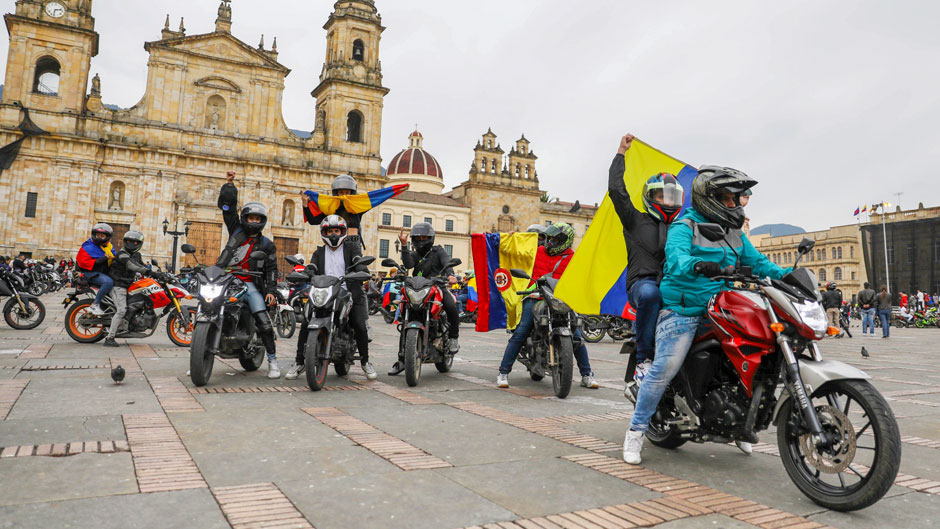Thousands of people have been loudly protesting in the streets of several cities in Colombia against the increasing poverty and inequality that has only been exacerbated by the COVID-19 pandemic. At least 24 people have died and some 800 injured, according to the Miami Herald.
Latin America continues to be a hotspot for the pandemic, with Colombia now experiencing its third coronavirus surge. The country, with a population of 50 million, has had almost 3 million cases of the virus and more than 76,000 deaths, according to the World Health Organization.
“COVID-19 has had a terrible impact in Latin America and more specifically in Colombia. Poor people are out of work and desperate,” said Joseph Ganitsky, professor of practice at the University of Miami Patti and Allan Herbert Business School and director of the master in international business program.
It is estimated that about 4 million people have been pushed into poverty in the country by the pandemic, according to the National Administrative Department of Statistics. The UN’s Economic Commission on Latin America and the Caribbean estimated that by the end of last year, 37.5 percent of Colombia’s population lived below the poverty line, making it the country with the highest poverty rate in Latin America.
“Populists are mobilizing them [the protesters] against the government, which has used its financial reserves to favor, on a very limited basis, those at the bottom,” Ganitsky said.
The protests initially began as a standoff against a proposed tax reform to deal with the pandemic deficit, but the tax reform has been rescinded and the treasury secretary resigned. The conservative government of President Ivan Duque has promised to revise the economic plan.
According to Ganitsky, the government must raise taxes and reduce expenses to cover the deficit. If not, Colombia will lose its favorable credit rating on international markets, which would translate into higher borrowing costs in years to come.
He also said the tax rollout could have been better handled.
“The government did not listen enough to key constituents before proposing the tax reform, and then it failed to properly communicate its important strategic intent,” he said. “The plan included new taxes on the middle class, which was opposed by all political leaders including those of the president's own party.”
Duque’s team—including its new treasury secretary—promised a new, more balanced proposal which could reflect the ongoing dialogue with different pressure groups, said Ganitsky.
In the meantime, a new wave of COVID-19 infections has hit the country hard, overwhelming hospitals. The government has asked for lockdowns that are not being followed, noted Ganitsky.
“This strike and opposition to the proposed taxes is positioning the left-leaning presidential candidate Gustavo Petro (a former guerrilla) much closer to win next year's presidential elections,” he added. This might be avoided, Ganitsky pointed out, if the various right- to mid-left leaning political factions unite, as they did recently in Ecuador.
“Keep in mind, Colombian voters are foremost very conservative, and they are already very scared of repeating Venezuela's mistakes," he said.
“The fiscal deficit and tax reform has just begun,” Ganitsky added. “The social and political unrest will not go away. Later this year different political leaders will reluctantly compromise at a not-that-good-solution for the country, let alone for those most affected by COVID-19.”

